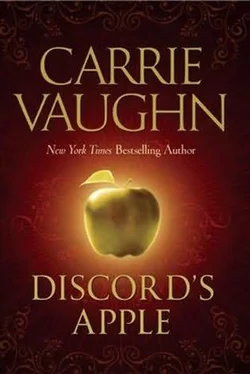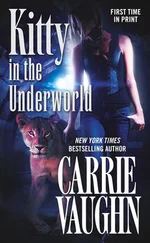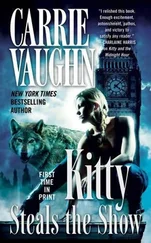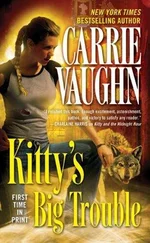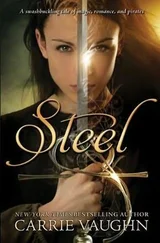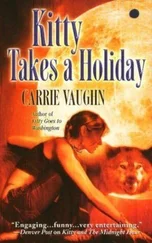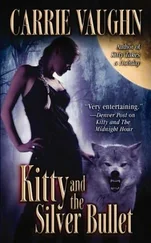She couldn’t spend the whole time wallowing in self-doubt, either. So all Evie had to do was get her to the bunker at the gulag, then see what happened next. Her hands paused over the keys. She looked over the back of the sofa to the kitchen door, waiting for someone to knock.
Her father emerged around suppertime, moving slowly but appearing alert. Evie rushed to help him, and of all the wonders, he let her. She heated up soup for him. He ate half a bowl and a few crackers, and seemed pleased with the accomplishment. They spoke little, commenting on the weather, passing on the gossip from town.
“Did anyone stop by?” he said.
“No.”
He limped back to bed, stopping on the way to scratch Mab’s back. Evie was proud of herself for not asking, yet again, if he needed help, if he was all right. She just had to hope she could get to him in time if he stumbled.
She returned to the sofa in the living room and tried to write. How long could she keep Tracker wandering on the tundra? Because when she reached her destination, Evie would have to figure out how she was going to beat up the bad guys and rescue the prisoner. All by herself.
Both she and her laptop fell asleep after midnight.
In the morning, her mobile phone and the house’s landline rang at the same time. Evie started awake, remembered where she was, and sat frozen while she decided which one to answer first. In the end she answered her mobile, which was closer and didn’t require a mad dash to the kitchen. Then the house phone stopped ringing.
“They’ve done it,” Bruce said as greeting. “They’ve fucking done it.”
Bruce kept harping on about the world, the news, everything, when her own world had shrunk to this house and her father. She ought to care—the world situation was going to hell. Even without watching the news, she could sense the tension in Bruce’s voice. She ought to care. But she only felt tired.
“Who’s done what?”
“Congress voted to back China. Who’d have guessed? Ten years ago, China was the fucking ninth level of hell, and now we’re allies ? It’s unreal.”
She winced. “Wasn’t China backing terrorists? The Mongolians? We’re not supposed to be backing a country that backs terrorists.”
“An economic market of a billion and a half consumers can’t be wrong, I guess.”
“You know my mom died in the Seattle bombing.”
“Yeah, I know, Evie.” Background static on the connection filled the pause. “You’re not the only one who feels that way. Protests are going on in Seattle and New York. They’re about to turn them into riots. The National Guard’s being called up.”
“Shit.” The architects of history, the generals and game-players, were at it again.
Another pause. Then, “How are we going to spin this in the book?”
She shook her head. “I don’t know who the bad guys are anymore, Bruce. We could miss the deadline. Delay the publication, see how this is going to play out. Or we could zap the team to another planet and pretend like none of this is happening.”
“I think I’d like to get zapped along with them. Paula isn’t going to be happy.” Paula was their editor, the one responsible for harnessing their creative energy and packaging it into the final product.
Evie gave a huff. “What good is being the creators of the country’s bestselling comic title if we don’t get any clout? Paula can deal with it.”
“Roger, Captain. You sound like crap, by the way.”
“I fell asleep on the sofa.”
“Right. What was the last thing you wrote before you fell asleep?”
The file was still on-screen, autosaved and everything. She read him back the last few lines. The last few interesting ones, anyway. What she’d produced last night looked abysmal by the light of day.
“Shit,” he said. “Tracker goes rogue. I like it. This could work.”
“It wasn’t really what I intended.”
“Hey, don’t argue. Just run with it.”
“Right.”
“Go take a shower. Get some coffee. Take care of yourself, okay?”
“You, too, Bruce. Hey, Bruce?”
“Yeah?”
“Does it even matter anymore?”
“What do you mean?”
“The comic. Why are we even talking about it? The world’s going to hell, my father’s dying—why am I still sitting down at my laptop?”
She could hear his breathing over the connection. He was tired; he’d been making himself sound cheerfully irate to hide it.
Then he said, “What choice do we have? It’s what we do. Otherwise we’d have to curl up in a ball and go crazy.”
She chuckled. Keep on going. It was all they could do.
“Thanks for calling.”
“I’m just worried about you.”
As she clicked off, her father came into the room, freshly showered, hair still damp, tucking his shirt into his jeans. He grabbed his coat off the chair he’d put it on, like he was actually planning on going somewhere.
“Dad?” She rose and followed him to the kitchen. Mab trotted along with them.
“That was Johnny on the phone. They’ve called up the whole Citizens’ Watch. He’s going to come pick me up.” His car was still out from when he’d collapsed on patrol.
“You can’t go out!” And how dare Johnny give him a ride in his condition.
“Why not?”
“You—you’re sick.” Did she really have to remind him that he’d spent yesterday in bed, doped up on drugs?
“Homeland Security’s instituted a lockdown and curfew. Johnny doesn’t have enough people to patrol. He needs me.”
A security curfew in Hopes Fort was ridiculous—no one ever stayed out late anyway. “Dad—nothing’s going to happen here. Those rules are for places like L.A. and—and Seattle.”
His lips thinned, like he was holding back words, or his temper. She should have said New York, or Chicago, or Atlanta. Anywhere but Seattle. The word was like saying failure.
Then he said, “It’s the principle of the matter, Evie. I have to do my part. I can’t go to L.A. or Seattle to help. So I do what I can here. Even if it isn’t much. Even if it doesn’t mean anything.”
He’d joined the Watch five years ago, right after Emma died. It was how he coped. Evie had the comic; he had this.
She couldn’t say anything to stop him. She’d cornered herself by bringing up Seattle, and gave up her right to continue arguing.
“Dad—I think you should go to the hospital. After yesterday—I could drive you, just to get checked out—”
“What’s the point? They’ll tell me it’s hopeless. That there’s nothing they can do to save me, but they can give me something for the pain, and they’ll pump me full of morphine and leave me in a bed to fade away. I can die on my own, I don’t need their help.” His hand on the doorknob, Mab sitting nearby and looking earnestly up at him, he said, “Watch over the Storeroom.”
Stifled tears tightened her voice. “I don’t care about that.”
“You will.” He scratched Mab’s ears. “Help Evie watch the Storeroom, girl.”
He closed the door behind him. Through the kitchen window, Evie watched him walk to the end of the driveway just as Johnny drove up in his police sedan. She thought her father was still limping. With his hands shoved in his coat pockets, his shoulders stiff against the chill air, it was hard to tell.
Robin Goodfellow crouched in the scrub by a fence post and watched the artist at work. The Curandera stood on the side of the highway running east out of town. The wind tangled her graying black hair; she wore a turquoise-and-silver pendant, which she gripped in her hand.
A person could go east from here, and keep going east for a thousand miles without the scenery changing much: flat winter fields covered in dry, bent stalks; a few fence posts strung with barbed wire; and sky, so much wide-open sky, a person could lose himself, wander in circles, and feel so small, he’d disappear from the universe.
Читать дальше
